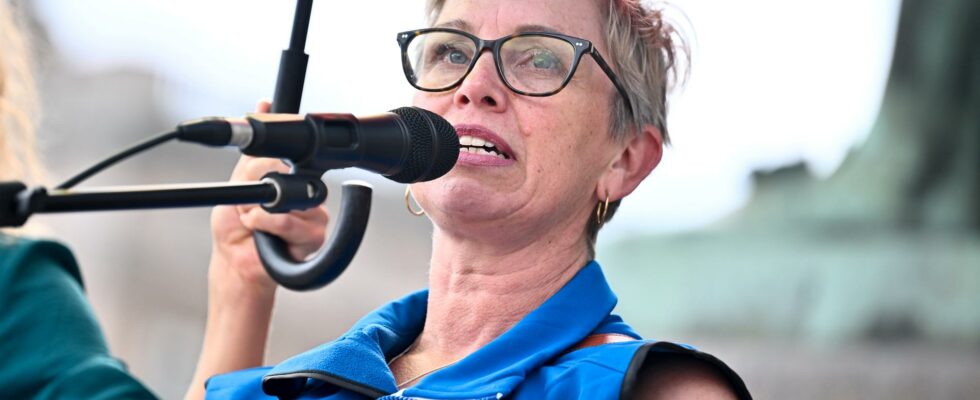unsaveSave
Emma Jonsson is the Vårdförbundet’s branch chairperson in Stockholm. Archive image.
1 / 4Photo: Claudio Bresciani/TT
Short on staff and gaps to be filled means a lot of overtime.
Nursing staff at several of the country’s larger hospitals have to work hard to get the business together this summer, according to the union.
– I see a high risk of exhaustion, says specialist nurse Ann-Marie Karmborg.
Summer is often a stressful time for healthcare and this year is no exception.
– You are short on staff and there are a lot of patients. You have a fixed minimum staffing and you often fall below it, says Emma Jonsson, chairperson of the Vårdförbundet Stockholm branch.
The understaffing is not only about not having enough staff, but also about the lack of people on site with the right skills, she says. It may involve replacing a nurse with an assistant nurse.
– You replace the competence and think that it must be good enough – it is not. It is very serious indeed.
Must cover up
Ola Palo, chief protection officer at Sahlgrenska University Hospital in Gothenburg, also testifies to a demanding summer.
– It is a rather tight working environment for our employees and they need to cover a lot for those who are on holiday, he says.
The overtime blockade that was introduced last spring is now a thing of the past. The business is built very much on staff overtime.
– That is not what the Vårdförbundet advocates. We think there should be a business that works when we are on holiday so we don’t have to feel guilty.
Returning to the night
The same picture is shared by Kenneth Byström, chairman of the Vårdförbundet Västernorrland branch. He describes that work shifts are often extended. After working during the day, you can stay in the evening, or you can go home and then come back and work at night.
The region was alerted during the spring that they were facing a tough summer in terms of staffing.
– Our concern was that it would be very strained, and it has been so far. You often can’t stand any privacy when you get home, you go to bed so you can go back to work.
Ann-Marie Karmborg is a safety representative at Skåne University Hospital and works as a specialist nurse in psychiatry. According to her, the crisis situation is the new normal.
– You can work 19 hours straight if someone calls in sick. The nursing team is hard pressed. I see a high risk of burnout with all this overtime and all our flexibility, she says.
She believes that the stoppage of rental nurses in January hit an already fragile organization hard.
– I would like to see some type of accident investigation into who is responsible for this collapse.
FACTS The custody conflict in the spring
Vårdförbundet announced an overtime and overtime blockade that came into effect on April 25 for around 63,000 members in the country’s regions. The blockade was extended on May 20 to also apply to several larger municipalities and a further 5,000 members.
On May 21, the Healthcare Union extended its conflict notice to apply to strikes in five regions: Stockholm, Västra Götaland, Skåne, Östergötland and Västerbotten. The strike came into effect on June 4 for around 2,000 people.
The strike was extended on June 11 to also apply to Värmland and included a further 1,300 midwives, biomedical analysts, X-ray nurses and nurses.
On June 28, the care conflict was over when both parties accepted the mediators’ offer, which included some shortening of working hours.
Read more
